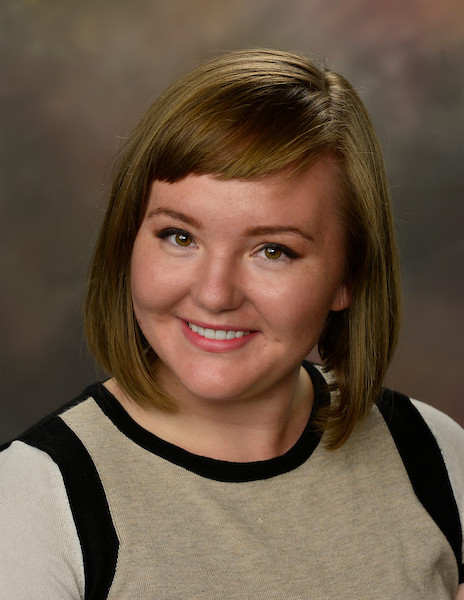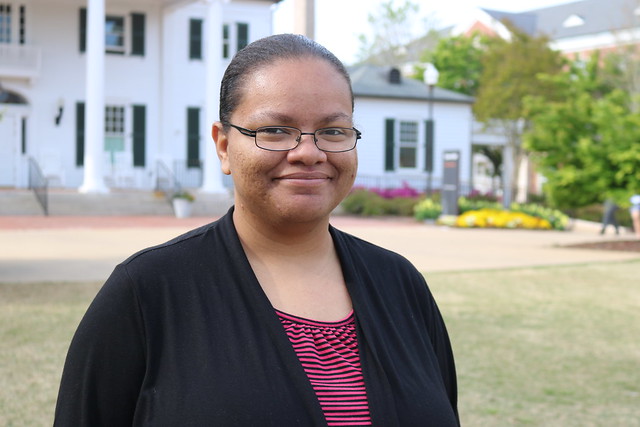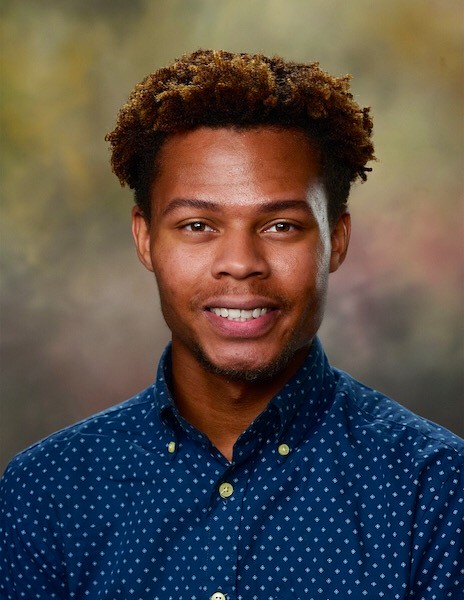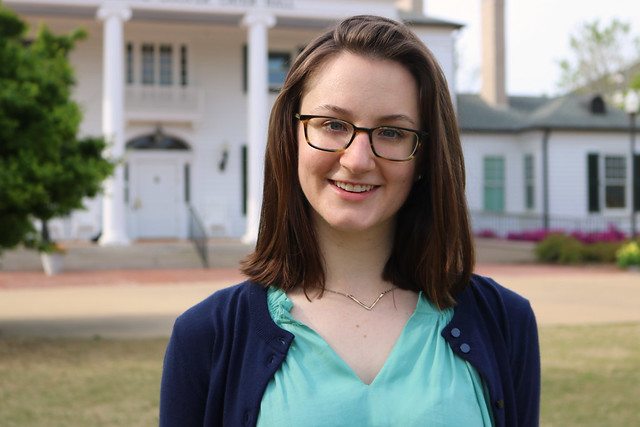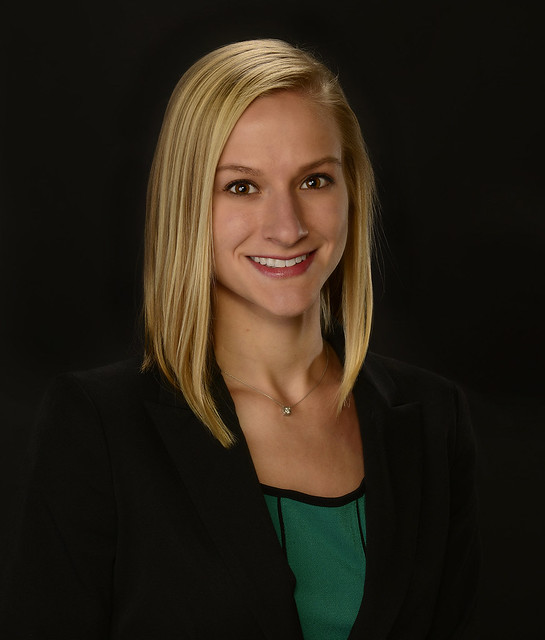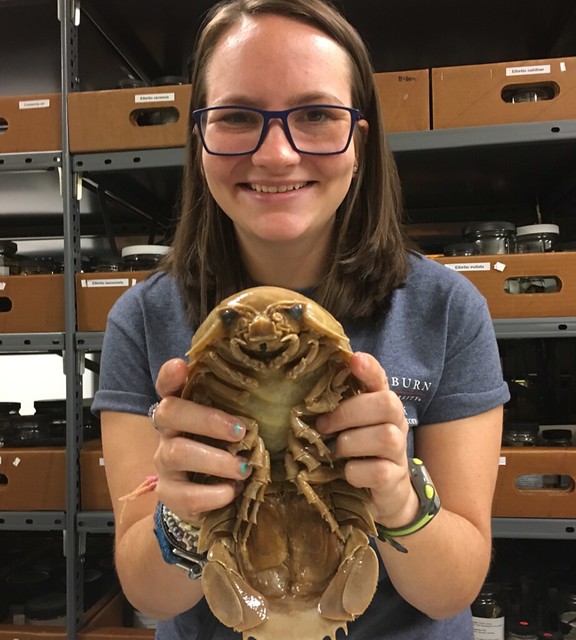Six from Auburn awarded prestigious National Science Foundation Research Fellowships
Article body
Five Auburn University students and an alumna are recipients of the 2018 National Science Foundation Graduate Research Fellowship, and five others received honorable mention. The fellowship program helps ensure the vitality and diversity of the scientific and engineering workforce in the United States.
This year’s fellows from Auburn are: Dalisa Kendricks, Steph Courtney, Elijah Johnson, Breanna Sipley, Jill Joffee and Kristin Zuromski. Their research topics include the effects of environmental neurotoxins; communicating climate change; enhancing spatial thinking; interaction of parasites and their hosts; detecting hidden improvised explosive devices; and protein quality control in cells.
Fellows benefit from three years of financial support within a five-year fellowship period – a $34,000 annual stipend and a $12,000 cost-of-education allowance to the graduate institution, as well as opportunities for international research and professional development. That support is for graduate study that leads to a research-based master’s or doctoral degree in NSF-supported science, technology, engineering and mathematics, and social science disciplines.
“The number of Auburn University students applying for the NSF Graduate Research Fellowship Program continues to grow each year,” said Paul Harris, associate director for National Prestigious Scholarships in the Honors College. “I congratulate each and every student who worked with their faculty advisors throughout the lengthy application process and I look forward to hearing of their continued success.”
Students create a personal statement and research plan for the fellowship program in conjunction with their faculty mentors and with the support of the Office of National Prestigious Scholarships in the Honors College as well as the Miller Writing Center.
“It has been a privilege to work with such promising students, learning about ground-breaking research, and helping guide them as they develop and polish their proposals,” said James Truman, assistant director of the Miller Writing Center.
-
Dalisa Kendricks is a second-year graduate student in the Department of Psychology's Cognitive and Behavioral Sciences program working with Chris Newland. Her project, "Developmental Methylmercury Effects on Sustained Attention,” seeks to determine deleterious effects of chronic exposure to methylmercury, an environmental neurotoxicant, during adolescence or gestation will have on sustained attention in adulthood and how drugs commonly used to treat inattention in human populations may mediate these deleterious effects. The outcomes of this research will be used to increase awareness of the impact of environmental contamination on neurodevelopmental disorders.
-
Steph Courtney is a first-year graduate student in the Department of Geosciences who is working with Karen McNeal, associate professor in Geosciences. Her project titled "Building better graphs for climate change communication: Evidence from eye tracking," involves graph comprehension, climate change communication, climate change risk perception and viewer knowledge, and eye tracking technology. Graphs are often used to communicate science topics, including climate change, to public audiences, and this project will provide evidence for making graphic communication more effective.
-
Elijah Johnson is a first-year graduate student in the Department of Geosciences and is also working with Karen McNeal. His project title “The Effectiveness of the Augmented Reality Sandbox for Improving Spatial Thinking in Undergraduates,” examines the distribution of spatial thinking ability across a range of majors in Auburn University’s undergraduate population. Subsequently, his study will ascertain whether teaching geological concepts through the augmented reality sandbox can effectively teach topography and train spatial reasoning ability.
-
Breanna Sipley is a second-year graduate student in the Department of Biological Sciences who is working with Jamie Oaks and Kenneth Halanych. Her project, “The evolution of endoparasitism in flatworms: What's VAP got to do with it?" will examine the genetic bases of parasitism with a focus on the evolution of gene families involved in evading and coping with host immunity. Of particular interest to the evolution of blood parasitism in flatworms are the venom allergen-like proteins.
-
Jill Joffe is a senior in Aerospace Engineering, and her project, “Demonstration of the Ability of Stand-Off Acoustic Waves to Induce Heat in Plastic-Bonded Mock Energetic and Energetic Materials” looks to improve the detection of hidden improvised explosive devices, or IEDs, at significant standoff distances. Joffe’s work will examine the use of acoustic excitations to cause plastic-bonded explosives to generate detectable amounts of heat without igniting. For the past two years Joffe has served as an engineering peer instructor under the direction of her mentor Bonnie Wilson who serves as the campus coordinator for the Women in Science and Engineering Institute.
-
Kristin Zuromski is a 2014 College of Sciences and Mathematics graduate with a bachelor’s in Biochemistry who, as an undergraduate, conducted research under the direction of Holly Ellis, The William B. Molette Professor in the Department of Chemistry and Biochemistry. Zuromski is currently pursuing her doctoral studies in Biological Chemistry at MIT. In her research, titled “Elucidating the Cooperation of ClpXP with the Protein Quality Control Network,” she plans to determine mechanisms of collaboration amongst protein quality control proteins that contribute to the maintenance of cellular health, response to stress, and homeostasis.
The five students and recent graduates who received honorable mentions are:
-
James Smith, a master’s student in the Department of Electrical Engineering and Computer Engineering;
-
Griffin Eagan, a senior in the Department of Aerospace Engineering;
-
Brandon Morris, a senior in the Department of Computer Science and Software Engineering;
-
Kayleigh Chalkowski, a doctoral student in the Cellular and Molecular Biosciences program;
-
Madeleine Eddy, a 2017 graduate of the Department of Chemistry and Biochemistry.
Jack Feminella, associate dean and professor in the College of Sciences and Mathematics , says “The NSF GRFP is the oldest fellowship program in the U.S. that directly funds graduate research in STEM fields. The program has long focused its emphasis on ‘funding people, not just projects.’ Auburn’s remarkable growth in the number of GRFP applicants and awardees over the past decade nicely reflects the increased quality of Auburn students as we continue enhancing our research profile. This year’s record number of awardees in current Auburn graduate programs speaks loudly to the growing excellence of MSc and PhD students and their faculty mentors pursuing groundbreaking STEM research on campus.”
For additional information about the NSF GRFP contact Paul Harris in the Honors College at paul.harris@auburn.edu. For more information about NSF GRFP, go to nsfgrfp.org/.
Related Media
Media interested in this story can contact Communications Director Preston Sparks at (334) 844-9999 or preston.sparks@auburn.edu.
The Honors College at Auburn University is designed to provide a select cohort of high-ability students a means to experience, explore, engage and elevate their academic dreams. The college offers four types of graduation distinctions, smaller class sizes, priority registration, undergraduate research and internship opportunities, study and travel experiences, access to graduate-level courses, peer tutoring sessions, flexible curriculums and designated Honors housing and study areas. Students engage in an academically challenging set of courses and programs to provide a deeper understanding of the class material.



